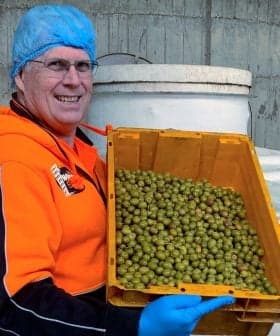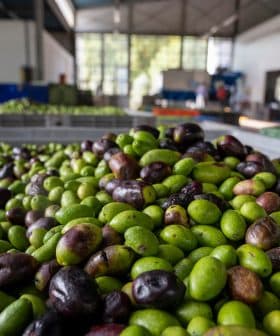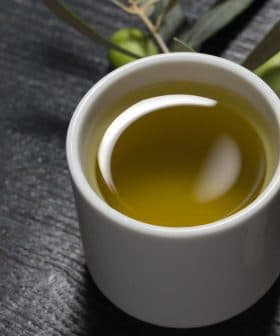Microorganisms in Extra Virgin Olive Oil May Lead to New Applications
Microorganisms found in low concentrations in extra virgin olive oil could lead to new possibilities in biotechnology.
New research from the University of Sassari in Sardinia identified a diverse array of bacteria in extra virgin olive oil, which could be utilized in probiotic-enriched foods and agricultural biotechnology products. The study found that the quantity and variety of bacteria in the oil varies depending on the olive tree variety and production process, with potential applications in various fields beyond food.
While it is known that different microorganisms thrive in extra virgin olive oil, many went undetected until now and some may lead to improved olive oil production practices and new kinds of products.
New research from a team of microbiologists at the University of Sassari, in Sardinia, described extra virgin olive oil as a rich basin of bacterial biodiversity. Among the potential uses for these microorganisms are in the creation of probiotic-enriched foods and agricultural biotechnology products.
Extra virgin olive oil is an extreme environment, the bacteria that live there could easily survive elsewhere, which means that they could be adopted in several fields of application.
“We observed several species of microorganisms in extra virgin olive oil and found that their quality and quantity varies from variety to variety,” Serevino Zara, one of the nine researchers involved in the study, told Olive Oil Times.
The researchers examined bacteria in oil produced in a controlled environment from 15 different olive trees varieties, among them Frantoio, Coratina, Bosana and Semidana.
See Also:Research NewsWhile previous research studied the presence of bacteria, their concentration was often below the limits of detection by standard culture methods. Through adopting new techniques, scientists are now able to evaluate these bacteria concentrations.
“As expected, we found fewer different species of bacteria in olive oils that are rich in polyphenols because of their antibacterial properties,” Zara said. “Extra virgin olive oil is an extreme environment, the bacteria that live there could easily survive elsewhere, which means that they could be adopted in several fields of application.”
He added that the oil production process impacts the quantity and variety of bacteria in the final product.
“We first looked for the microorganisms in the olives, then in the following steps of the transformation process and after that in the produced olive oil,” Zara explained.
The quantity of bacteria detected decreased after each step in the process, but several types of microorganisms still thrived in the final product.
Among the foreseeable applications for the research is the use of the probiotics found in the samples. This hints at the possibility of producing a new range of products, including probiotic extra virgin olive oil, which could appeal to those who usually turn to probiotic dairy products.
“Other microorganisms found in extra virgin olive oil could trigger new more efficient biotechnologies for the environment restoration operations, both on land and sea, because of their ability to digest industrial oils and transform them into compounds that can be absorbed by the environment without further damage,” Zara said.
Researchers also found some evidence of antibiotic resistance in some bacteria, a natural occurrence that was investigated because of the relevance of the matter on public health.
Bacterial concentration in extra virgin olive oil destined for consumption is so low that it does not represent any kind of threat to human health, but the specific characteristics of the microorganisms in those low concentrations could be used to develop new biotechnologies.
“Several microorganisms could productively be used as plant growth inducers, for instance, and in such a case, it is quite relevant to understand how they could affect the biotechnology product and the plants themselves,” Zara concluded, hinting that further research on extra virgin olive oil bacteria was needed.









